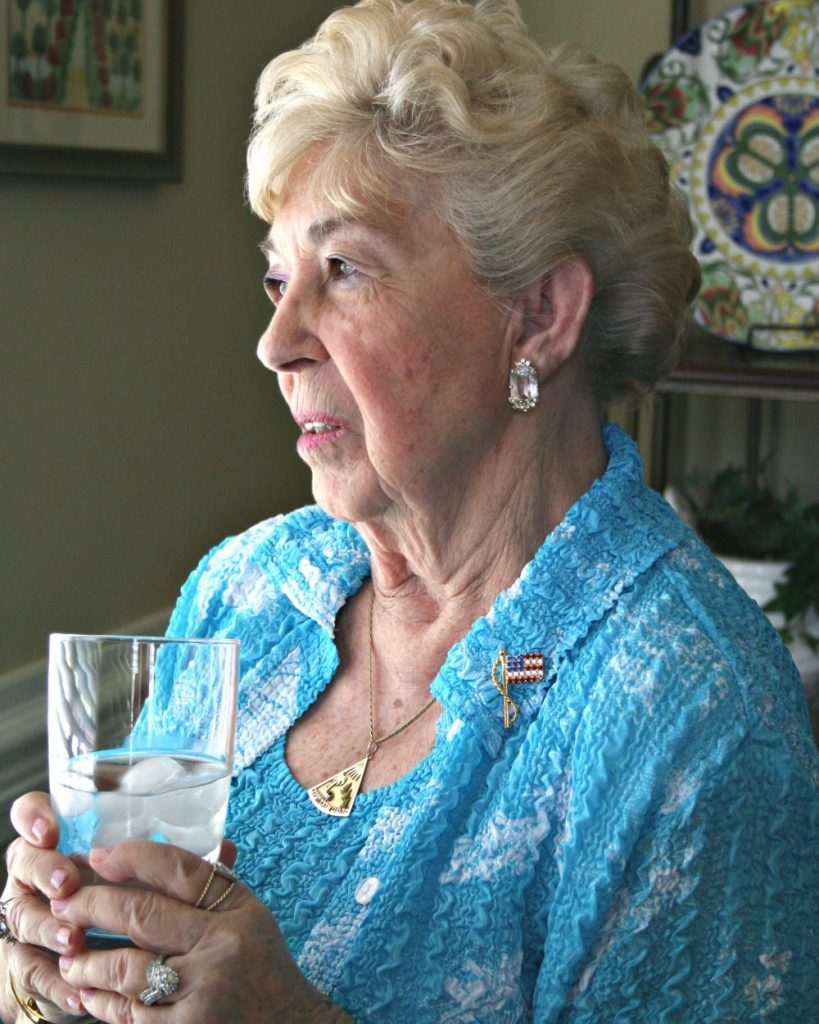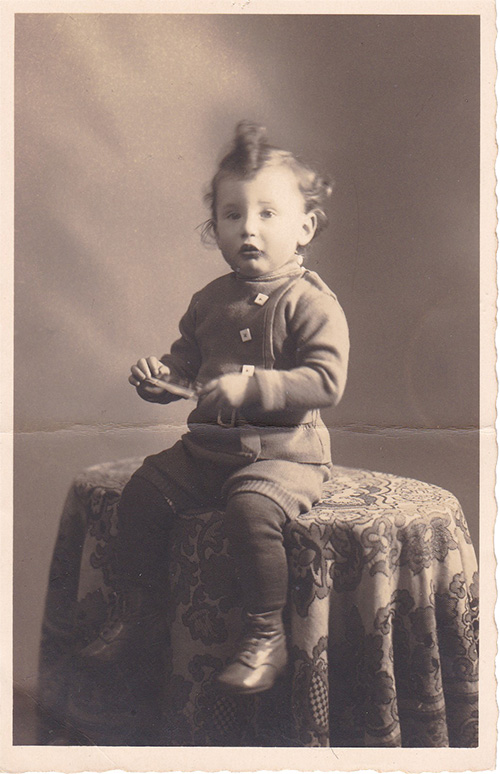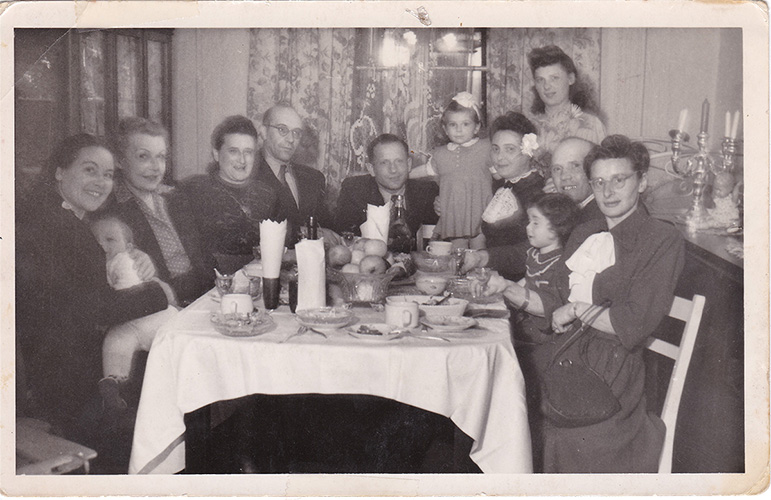
Water
By: Becky SeitelOn the train ride to Auschwitz, Agnes Tennenbaum was unable to move.
“We were jammed in like sardines in a box,” she recalls. “There was no toilet, no water, no food.” In the stifling hot car, Agnes, her mother, sister, and cousin struggled to get close to a window for air. But it was the lack of water that was the worst.
“Without water, you could lose your mind. The thirst – it was so strong it was hard to think.”
Under mild conditions, a fairly healthy individual can survive perhaps a week without water. But if people are subjected to high temperatures, it’s impossible for the human body to survive more than a few days. After two days and two nights, they arrived at Auschwitz, barely alive.
The possibility of death, and the different ways that might happen, were quickly explained to Agnes by the other prisoners.
“Even though I was terrified of dying in the showers, I also knew that would be an opportunity to have water. After slow, torturous seconds passed, and death didn’t claim me, I would stand there with precious water falling around me and drink as much as I could before I was forced to move away,” she says.
Agnes was chosen by Dr. Joseph Mengele to move from Auschwitz to Allendorf to learn the art of making bombs and mines to kill the Allies. In March 1945, she was liberated from Allendorf by the American Army. She was 22 years old.
After liberation, Agnes learned that every member of her family except her cousin, Edith, had been exterminated in Auschwitz. A gifted writer, Agnes pays tribute to her family and other victims in the following poem:
To the Memory of Six Million Jews and Others
Ashes blown by the wind.
Green grass over unmarked
Graves.
We carry the torch of
Remembrance,
We, who survived.
Our lives marked forever
By the tragic memories of the
Past.
We can’t forgive or forget
The stolen youth we never had.
The grandparents our children
Never knew, never met.
Hunger, thirst, and torture of
Body and soul
That never ends,
Watch. Be sure it never
Happens again!


